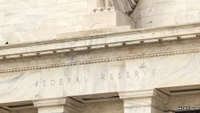Free Airdrop Season 7 is LIVE! Answer fun questions or do simple tasks to earn rewards from the $30K BitDegree prize pool. Participate Now ! 🔥
French Lawmakers Pass Stricter Licensing Rules For Crypto-Related Firms
The bill, although approved by the Senate, will become law only after it receives a green light from French President Emmanuel Macron.
French lawmakers passed new crypto licensing laws. The bill was passed with 109 French Senate members voting in favor of the law and 71 against the proposal.
The new crypto-related bill is part of a broader effort from French lawmakers to adjust the nation’s laws with EU standards.

Did you know?
Subscribe - We publish new crypto explainer videos every week!
What is a MetaMask Wallet? (And How to Use it - Animated)


After the French Senate approved the proposal, the bill was sent to President Emmanuel Macron. The President of France now has 15 days to sign the rules into law or send the bill back to the national assembly.
While the new rules are restrictive, they are milder than initially proposed. Following the collapse of FTX, French lawmakers proposed some of the most strict crypto-related rules in Western Europe.
Under the new rules, which are anticipated to become law in the next two weeks, crypto firms operating in France will need a license from the Financial Markets Authority (AMF).
On top of that, crypto firms will have to apply stricter anti-money laundering rules, provide data about fund segregation, and report to authorities. Under the new reporting rules, firms must disclose any possible risks and have policies to prevent conflict of interest.
When talking about the necessity to regulate crypto-related companies in France, the French Central Bank governor Francois Villeroy de Galhau noted:
It is desirable for France to move to an obligatory licensing of DASP as soon as possible, rather than just registration.
The new licensing regime will apply to all companies seeking to operate in France from July 2023. The firms already holding a Financial Markets Authority (AMF) license will continue to follow current rules issued by AMF. They will work under these rules until the end of the transition period offered by MiCA, which could last until 2026.






















